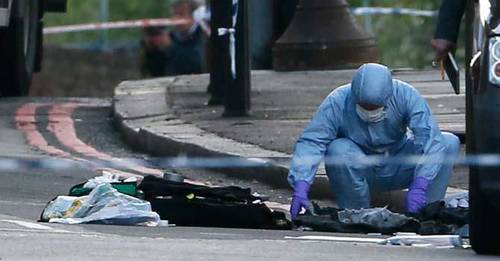Britain vows tougher rules for terror convicts after latest London attack

British Prime Minister Boris Johnson will set out tougher rules for terror convicts after a man released early from a jail term for terrorism offences injured two people in a stabbing spree in south London.
Sudesh Amman, who was jailed in 2018 for terrorism but released halfway through serving his three-year sentence, was shot dead by police when he began stabbing people on a busy London street.
"We will announce further plans for fundamental changes to the system for dealing with those convicted of terrorism offences," Johnson said.
"My thoughts are with the injured victims and their loved ones."
British politicians have repeatedly called for tougher rules for terror suspects, calls that increased after a former convict killed two people and wounded three more before police shot him dead near London Bridge in November 2019.
Johnson said that since that attack, the government had "moved quickly to introduce a package of measures to strengthen every element of our response to terrorism including longer prison sentences and more money for the police".
Sunday's attacker, Amman, had been jailed for promoting violent material and had even encouraged his girlfriend to behead her parents. He was under surveillance at the time of the attack.
In November 2018, he pleaded guilty to possession of terrorist documents and disseminating terrorist publications, and the following month he was sentenced to more than three years in prison.
He was 17 and living at home with his mother and younger siblings when he first began committing terrorism offences, according to authorities. Police became aware of his activities in April 2018 and he was arrested by armed officers in a north London street a month later.
When officers examined his computers and phone, they found he had downloaded material about making explosives and carrying out terrorist attacks, according to prosecutors.
Messages showed that he had discussed with his family, friends and girlfriend his extreme views and desire to carry out an attack, often focused on using a knife, prosecutors said.
In December 2017, Amman posted a picture of Islamic State leader Abu Bakr al-Baghdadi, who was killed during a US raid in Syria in October, and told his brother in a message that "the Islamic State is here to stay".
He also described Yazidi women as slaves, and in another message he encouraged his girlfriend to behead her parents.
Police said he had shared an online Al-Qaeda magazine with his family and while in a discussion about school with a sibling he wrote he would "rather blow myself up".














































